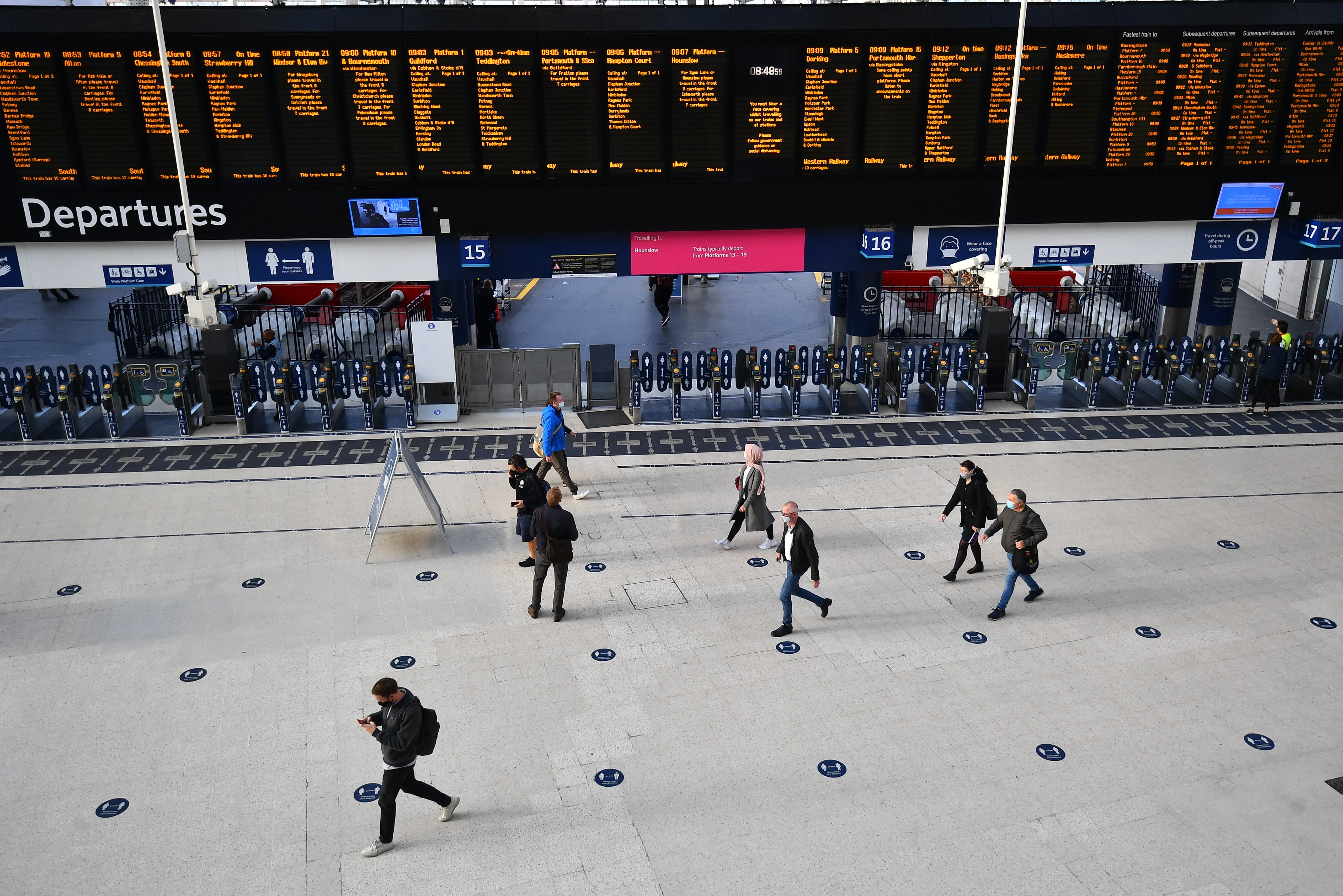Rail usage sinks to pre-1872 levels
Journey numbers in the 12 months to the end of March fell by 78%.

Passenger numbers on Britain’s railways in 2020/21 reached the lowest level in at least 150 years, new figures show.
Just 388 million journeys were made in the 12 months to the end of March as the coronavirus pandemic saw demand for travel collapse, regulator Office of Rail and Road (ORR) said.
This is just 22% of the total of 1.739 billion during the previous year and is the lowest annual figure in records dating back to 1872.
Most of the mainline network was built by that date and services were operated by steam trains.
Railway historian Christian Wolmar said it was “not an integrated network”, meaning journey times were much longer.
A trip between London and Edinburgh took around eight or nine hours compared with as little as four hours and 20 minutes today, he told the PA news agency.
The period between April and June 2020 saw the lowest demand for train travel, with just 35 million journeys made.
After coronavirus restrictions eased, 133 million journeys were made in the following three months, and 139 million between October and December 2020.
But the imposition of another national lockdown led to just 80 million journeys being made in the first three months of 2021.
Passenger revenue in 2020/21 totalled £1.9 billion, just 18% of the £10.4 billion figure generated 12 months earlier.
ORR director of planning and performance Graham Richards said: “This unprecedented fall in passenger numbers, the lowest annual fall since the time series began, has clearly had an impact on both rail usage and ticketing revenue.
“Despite this, recent estimates published by the Department for Transport show that rail usage has recovered to around 45% of pre-Covid levels by the end of May 2021.”
He added that the regulator “continues to work closely to support industry and help passengers back on to the railway safely”.
Robert Nisbet, director of nations and regions at industry body the Rail Delivery Group commented: “Despite plummeting passenger numbers during the last year, Britain’s trains have helped to keep key workers and people who cannot work from home on the move throughout the pandemic.
“As restrictions are lifted, the rail industry, through our safer travel pledge, will welcome more people back to train travel and help to support the country’s economic recovery.”
Mr Wolmar called for “a campaign that sells the railway to the public” to boost journey numbers.
He said: “Far too much energy is going into sanitising handles and all that, rather than trying to reassure people that actually with the ventilation you have on railways, air conditioning and so on, it’s very safe.
“There needs to be a big marketing campaign.
“That needs to include fare offers. Instead of putting the fares up – which is what happened in March – the fares need to come down both across the board but also there needs to be lots of good offers (such as) two for one, get the family on free.”